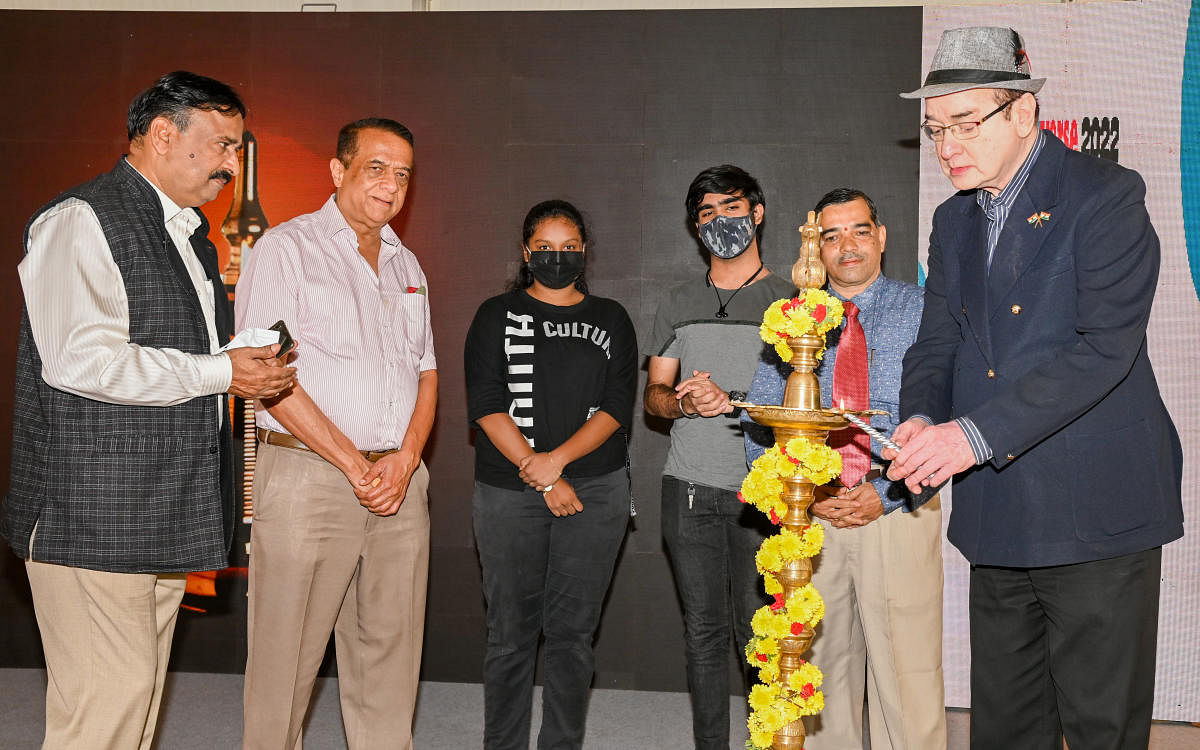
"Why you select a course is more important than what you’re selecting. You should give priority to the quality of your education by choosing a reputable institution."
This is the advice of noted career counsellor and behavioural specialist Dr Ali Khwaja to aspiring engineering and medical students.
Dr Khwaja, chairman of Banjara Academy, addressed a gathering of students and parents from across Bengaluru at Eduverse 2022, the 12th edition of the premier education expo Eduverse-Jnana Degula, organised by Deccan Herald and Prajavani on Saturday.
Khwaja explained how students should choose the right career path and avoid herd mentality.
Speaking to DH, Dr Khwaja reflected on the changing trends in science. "Knowledge becomes obsolete very quickly in the age of AI and coding, which is why I believe the individual’s calibre is more important than the data being studied," he said.
He added that the intersectionality of fields in the current job market requires people to be constant learners.
"Specialising and hyper-focusing are no longer good enough. It is important to stay in touch with diverse fields and information sources," he said.
COMED-K advisor Dr Shantaram Nayak spoke about the COMED-K counselling process.
While it is important to do your homework on the course you intend to choose, it is important not to get overwhelmed by the wealth of information available at one’s fingertips, he told DH.
"Having your priorities straight is the most vital step, be it in the seat selection process or any exam or in understanding your aptitude and interest,” he said.
Addressing students’ evolving preferences in engineering streams, he said courses gain and lose popularity in cycles.
"Today, AI and computer science engineering are the most sought-after choices. However, that trend, too, will fade and perhaps mechanical and electronics engineering will regain their top spots. In the end, your basics are what keep you afloat," he said.
"The AI boom has not reached its full potential in terms of the syllabus in our universities yet, but I am confident it will in a few years."
Srinivasa Murthy of the Karnataka Examinations Authority shed light on the CET application and allocation process and cleared doubts on the post-pandemic seat allocations.
"Some may feel it is unfair that those who finished the 12th grade last year did not actually write boards, and if they are re-applicants in this year’s process, their marks may be higher. But the pandemic and the physical and mental toll it has taken on all of us is above everything, and we have to ensure that students are able to keep their education going as smoothly as possible,” he said.
He explained that despite fluctuations in the job market, the diversity of the science stream would enable students to apply their skills to any career they choose, so engineering and medicine will always be popular choices.
In the final session, NEET advisor A S Ravi explained the NEET counselling process, with detailed breakdowns of the all-India and state categories and cut-offs.
In a conversation with DH, he said that while medical courses in India were difficult to get into, they remained in high demand because of the respectability and universal relevance of the field.
"Irrespective of changing trends in technology, the act of caring for humans is a permanent thing,” he said.